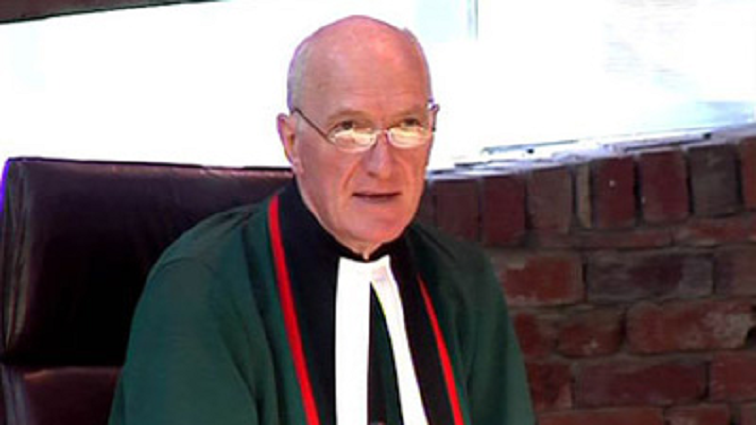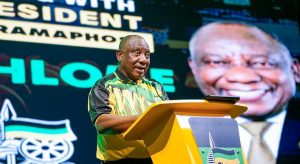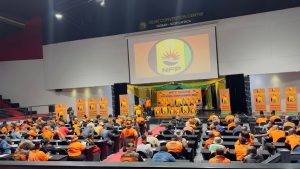South African Constitutional Court Justice Edwin Cameron says LGBTI activists must re-commit themselves to the fight for equal rights for all persons, irrespective of their sexual orientation.
South African Constitutional Court Justice, Edwin Cameron was addressing an LGBTI symposium at the University of KwaZulu-Natal under the theme “Decolonising LGBTI Rights in Africa”.
The acronym LGBTI refers to persons who are lesbian, gay, bi-sexual, transgender or intersex. The conversation comes on the 70th anniversary of the Universal Declaration of Human Rights.
Cameron says the criminalisation of homosexuality remains entrenched in far too many African countries.
The conversation around the challenges being faced by the LGBTI community across Africa, was a frank one. Activists and LGBTI individuals came forward to speak about how South Africa’s progressive laws on homosexuality, will mean little, as long as the majority of African countries remain homosexually oppressed.
Violence and abuse towards LGBTI persons remains a serious challenge. Concerns were raised around access to healthcare- in particular anti-retroviral HIV treatment.
Cameron says: “Condoms across Africa they are denied. Their presence is denied. The fact that they have sex is denied, the fact that they love people of the same sex is denied. The fact that we as homosexual men are at particular physiological vulnerability to HIV is denied across Africa… Countries in Africa still persecute, arrest, attack, beat up and often murder LGBTI people. So we cannot rest on our laurels because too many people, more still across Africa, are still being persecuted.”
Cameron lauded the work done by anti-apartheid and homosexual activist, Simon Nkoli. He was part of the 1985 Delmas Treason Trial, charged with treason and murder.
Nkoli was rejected by his fellow trialists after revealing his gay status to them, while in prison. He was later acquitted and released in 1998. Nkoli died in 1998 from Aids.
“I was a gay man, a proudly gay man who knew Simon in the 1980’s. We were comrades, political comrades and also close friends. Without Simon’s grass roots activism, without his astonishing courage to come out to the Delmas treason trialists. To assert his entitlement as a homosexual man, part of the struggle against the hateful apartheid system, in doing that Simon made it possible for us to say to the constitutional negotiators, give us equality, give us human dignity!” adds Cameron.
Cameron identified Africa’s resistance to decriminalising homosexuality as a barrier to democracy, even for countries like South Africa. He says South Africa became the first African country to legalise same sex marriage in 2006.
Cameron provides examples of countries- like Nigeria- where same sex marriage and even behavior is seen as a crime.
“The law defines propagating same sex marriage in Nigeria as advocating any form of homosexual equality it expressing any form of homosexual expression. So If I land in Lagos or in Nigeria and I say, that I Edwin Cameron, Judge of the constitutional court and am openly and proudly gay man. Wish to advocate for gay and lesbian equality. I’ve committed a criminal offense I’ve advocated same sex marriage and I am liable to punishment of 14 years in Nigeria.”
Cameron has lauded countries and communities where diversity is recognised.
“Look at Rwanda. 24 years ago as we were becoming a democracy in SA for 90 days, 10 thousand people every day were hacked to death with machetes by their own neighbours, family and community members. That is the true cost of rejecting diversity. That is the true cost of rejecting the fact that humanhood is so beautifully different in all its forms.”






